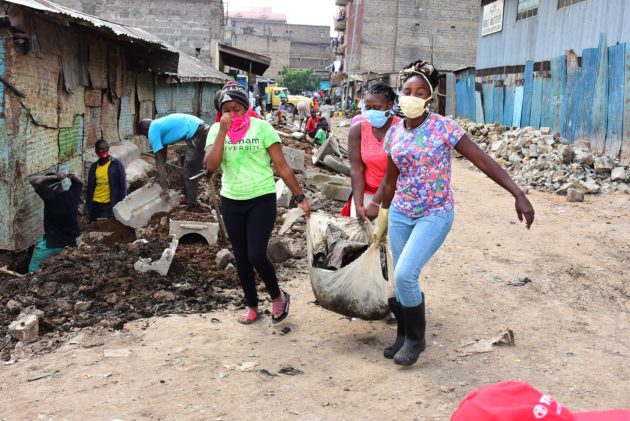- President Ruto, on Monday, July 15, 2024 while on a development tour in Nakuru, hinted at reinstating the Kazi Mtaani program in Kenya, which had been terminated two years ago.
- In September 2022, the Head of State discontinued the program, arguing it was used as a conduit to plunder public resources.
For a country that has faced many economic challenges, one of them being a high percentage of youth unemployment, re-introducing Kazi Mtaani to provide temporary employment to young people through community projects doesn’t seem like a terrible idea.
However, despite the president's noble intention with the initiative, will it be a scam or a solution?
President Ruto, on Monday, July 15, 2024 while on a development tour in Nakuru, hinted at reinstating the Kazi Mtaani program in Kenya, which had been terminated two years ago. In September 2022, the Head of State discontinued the program, arguing it was used as a conduit to plunder public resources.
Kazi Mtaani was introduced in Kenya in April 2020 by former president Uhuru Kenyatta in response to the economic downturn as a result of the COVID-19 pandemic that hit the country.
It is crystal clear that the initiative's main aim is to create jobs for young people by engaging them in local projects like planting trees, cleaning streets and rehabilitating public spaces. But will this program escape the normal corruption and mismanagement as we are all familiar with most new government programs? Is it going to be a case like the Huduma number scandal?
Read More
There were numerous allegations that government officials and local leaders had embezzled funds allocated for the initiative. In a country like Kenya, where corruption is persistent, It would not be a surprise when the program comes crashing down a few weeks after its launch.
The lack of transparency in the selection and management of Kazi Mtaani has fueled suspicions of corruption. There have been reports of ‘ghost workers’ on the Kazi Mtaani payrolls. Their existence only points to deep-rooted corruption and lack of proper oversight.
Although the program aims to improve urban environments through community projects, the impact has been limited. Many tasks assigned to Kazi Mtaani workers, such as cleaning streets and clearing drainage systems, are essential but do not lead to long-term community development.
For Kazi Mtaani to fulfil its purpose, necessary reforms must occur. For example, improve transparency in the recruitment and payment processes. Let there be strict oversight to eliminate the ghost workers. These changes are necessary for the program to remain a symbol of one of the president's unfulfilled promises and squandered opportunities.










